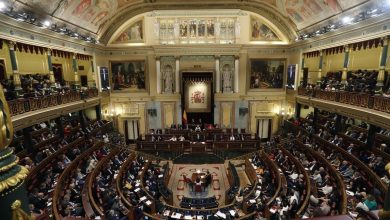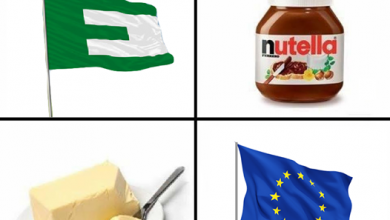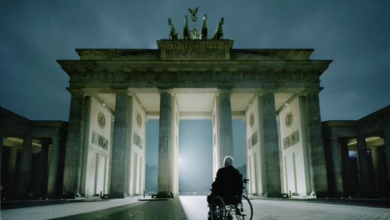What Happens Next in Case of a No-Deal Brexit?

The chief EU negotiator Michel Barnier had originally set Wednesday, December 9 as the deadline for completing the Brexit negotiations. That deadline has now been extended to this Sunday, December 13. Despite repeated confirmations on the EU’s side that this is a ‘firm’ deadline, presumably, it could be extended further. However, the agreement for a transition period to Britain’s exit from the EU comes to an end on December 31, 2020, meaning that there is not much additional time for discussions. If an agreement is not reached by Sunday the 13th, then, the UK will likely careen towards a no-deal exit.
Up until the New Year, but not one day longer, the United Kingdom, despite having formally left the EU already, will remain a member of the single market for goods and services and, although not a member of the Schengen area, it will also continue allowing free movement of people. This gives rise to an issue when considering the possibility of further extensions of the negotiations for a post-Brexit arrangement for trade and people: any agreements before January 1, when the existing arrangements become null and void.
What does No-Deal mean?
If Great Britain exits the EU in a no-deal situation on January 1, trade would automatically return to World Trade Organization (WTO) rules. WTO rules are liberal in the sense that they admit most goods and services and impose low tariff rates. However, they are more restrictive than the current ‘single market’ arrangement the UK enjoys with the EU. Currently, 50% of UK trade, imports and exports, is with the EU – this would make raising tariffs and other impediments costly for the UK. It would also, of course, have an impact on the EU, but with the EU’s total external trade with the UK only representing about 12% of the total, the impact will be inferior.
Major categories of UK exports such as automobiles would further be affected by 10% WTO tariffs, making many car exports uncompetitive. Large automakers with factories in the UK, like Nissan, have already suggested they would be forced to leave. UK suppliers for products finished in the EU could also be replaced, for example as in the case of the British Rolls Royce engines for the Airbus, which compete with the USA’s GE Aviation or Pratt & Whitney.
Imported foodstuffs, of which 80% come from the EU and which supply nearly one-third of total UK consumption, could also be affected. Here, the issue is not only tariffs and higher prices for consumers, but also differing phytosanitary regulations. Once again, the EU will also be affected, although to a lesser extent. Whether EU rules will still allow for the importation of UK sourced lamb and some other products remains to be seen.
Pharmaceuticals also present a serious problem. Approval mechanisms and production controls will no longer be accepted mutually and will result in significant pipeline delays for many medications people need. Hopefully this can be remedied through stop gap measures but so far this has not been done.
Immediate Disruption
A UK government study has estimated that, in a worst-case scenario surrounding a no-deal outcome, roughly 7,000 lorries could be held up from crossing the channel. Even in the case of a deal implemented at the last minute, significant disruption will take place as few of the new tariff codes and phytosanitary regulations would be in place to apply to incoming and outgoing goods on both sides of the Channel.
The UK has put in place traffic and staging plans to deal with the situation, but the disruptions in southeast England and northern France and the Benelux would be enormous. For its part, the EU has put in place contingency plans that would allow airline flights to continue for six months with grandfathered inspection recognition, providing mutual action by the UK. The EU contingency also calls for a one-year grandfathering of fishing rights also contingent on reciprocity. Fishing industries in both the EU and UK would be hit hard by a no-deal. Navies are already being prepped to enforce the rules.

Movement of People
Free movement of people between the EU and UK will end on January 1. Though visas are not envisaged for visits under 90 days, passports, medical attestations of insurance, automobile insurance papers and other documentation will become more onerous than at present. After 90 days, EU citizens wishing to remain in the UK will have to apply for a change of status. This will be true even for spouses of UK citizens. It is not yet clear how various EU member states might regulate UK citizens in similar circumstances. On the other hand, the EU travel ban on non-EU countries due to COVID-19 could be extended to the UK with the New Year.
Northern Ireland
The border between Northern Ireland and Ireland was a key aspect of contention in the withdrawal agreement. Keeping the border open for the thousands of people who cross daily for work and social activities has been since the Good Friday Agreement are a major focus of both Irish governments.
Although the UK agreed to maintain open borders by checking goods for EU compliance at sea, the UK has already tried to renege on this agreement. It immediately back stepped after meeting stiff resistance from the EU as well as third parties like the US, with its incoming Biden administration, and the UN. Nevertheless, as this issue touches on UK sovereignty, in the absence of a post-Brexit deal it may come under further pressure.
Who is to blame?
If there is such a thing as blame in the failure to reach an agreement beneficial to both sides, it must certainly fall on the side which may want a no-deal agreement in the first place. In the eyes of most observers, this appears to be the UK. Though the popular movement around the original Brexit vote was strong, it was fanned by a political class of Tory politicians having a lot to gain personally by a return of greater sovereignty to the UK.
As the rather nebulous aspects of UK ‘sovereignty’ have inserted themselves into the negotiations for a new trading agreement, they have made any agreement difficult to reach on purely beneficial terms. The perceived matter of the UK having final say has made agreement elusive. Final say in trade is, unfortunately, a non sequitur as both sides must adhere to the rules if there is to be any equitable trade at all.





